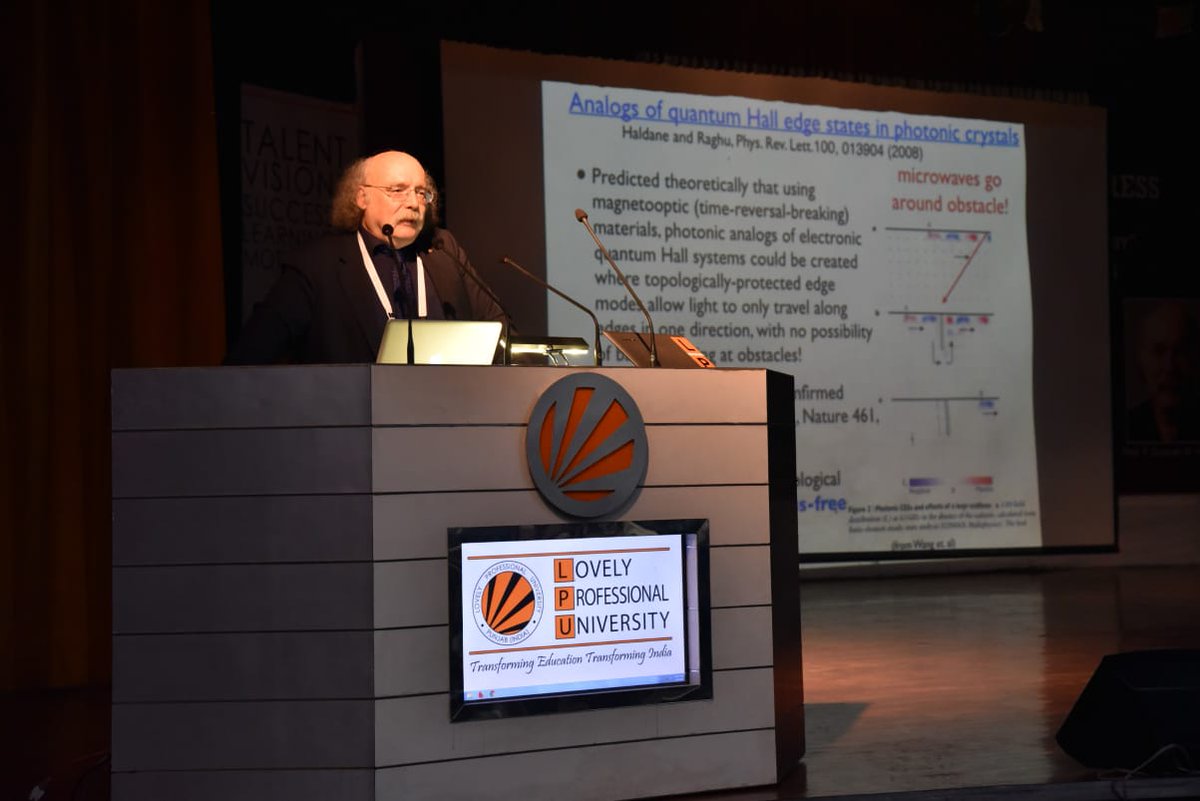Nobel Laureate Prof Duncan M Haldane during his lecture at the Indian Science Congress encouraged students to prepare themselves to recognize unexpected findings when they stumble on something and dedicate themselves to follow through and fight for it.

“You need luck to stumble across something truly unexpected that turns out later to have an impact, Preparation, to recognize what you found, as something remarkable, commitment, to follow it through and fight for it,” the Nobel Laureate in Physics said to a hall full of students and scientists and faculty listening to him in rapt attention.
His engaging lecture on ‘New Developments in Quantum Mechanics: Entanglement and the dream of quantum information processing’ walked the audience through our dream computers & how the science behind it evolved from the times of Albert Einstein, Erwin Schrödinger, Werner Heisenberg, Wolfgang Pauli & Paul Dirac.
He also spoke about how controversy and the struggle between ideas helped the theory of entanglement to evolve.
Quantum entanglement is a quantum mechanical phenomenon in which the quantum states of two or more objects have to be described with reference to each other, even though the individual objects may be spatially separated.
This leads to correlations between observable physical properties of the systems.
“While some scientists explained weird behavior of particles with the help of quantum entanglement, others like Einstein opposed it calling it ‘spooky action at a distance’. Later it was verified experimentally settling the controversy between theorists,” Professor Halden explained.
He said that this chain of evolution of theory and experimentation is termed the second wave of quantum mechanics bringing in its wake dreams of a very powerful computer. The central theme in the new approaches in the second wave stem from the property of entanglement which will drive the possible future quantum mechanical processes.
“The experimental proof of the existence and the control of quantum states has become the central aim of scientists and is on the way of being achieved. Countries like China and USA have taken up the quantum initiative in a big way and India with its expertise in the subject should also take it up in a big way, “the Professor elaborated.
Major breakthroughs in science take time to yield usable results. Given the current level of understanding of the subject he was hopeful that the technology from quantum mechanics will take 10 to 20 years to take taker shape.






























